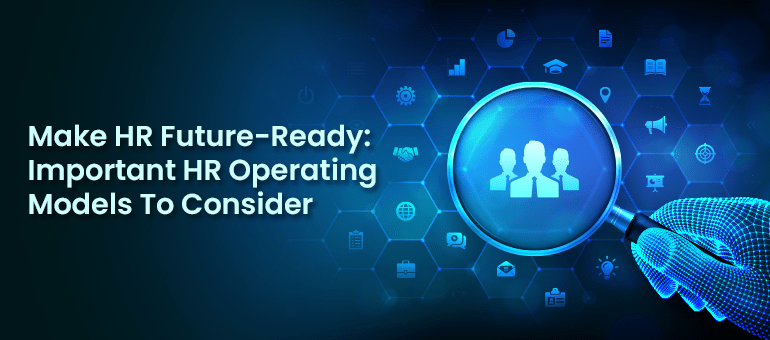Wouldn’t it be wonderful to own a crystal ball that might reveal the future? Then perhaps the HR developments that have occurred over the previous two years have not come as a complete shock to you. The quick pace of change in the HR market is largely attributable to the development of new technologies. It will be imperative for the HR industry to adopt new trends in HR in 2023 if it is to continue operating smoothly. Major HR developments in 2023 may be just as unexpected, but we can make well-informed predictions now. In this blog, we will discuss the top 10 HR trends to watch in 2023.
#1 Prioritizing Diversity, Equity, and Inclusion (DEI)
A growing number of businesses are realizing the value of fostering an inclusive and diverse workforce. All areas of the business should be committed to diversity and inclusion, from recruiting a diverse workforce to establishing inclusive policies and procedures. DEI is about more than just meeting legal requirements or warding off lawsuits; it’s also about making sure everyone at work feels like they belong and are appreciated.
#2 Increase In Adaptable Work Solutions
Besides the option to work from home, many modern businesses also permit employees to work flextime, share jobs, or work part-time. Such policies assist both employees and companies by facilitating the achievement of a healthier work-life balance. The term “flexible work arrangements” can refer to a wide range of policies, from employees being given the freedom to set their own schedules to the option of working fewer hours each week or month.
#3 Significance Of Employee Wellness
More and more businesses are placing a premium on their workers’ health and happiness, realizing that contented employees are more likely to give their all to their work. Offering resources for emotional well-being, physical health, and general wellness has been increasingly common in recent years.
#4 Freelancing and Gig Economy
Freelancing and other forms of independent contractors, known as the “gig economy,” are growing in popularity. Businesses are increasingly using freelancers to meet their short-term or project-based staffing needs, and an increasing number of workers are choosing to work in this way. As a result of the rise of the “gig economy,” professionals now have more flexibility in terms of scheduling and location, as well as the opportunity to take on different kinds of jobs.
#5 The Prevalence Of Remote Work
Companies are increasingly adopting a totally or partially remote model in response to the COVID-19 epidemic. Employers save money on office space since remote workers can work from anywhere with an internet connection. With the option to work remotely, employees have more freedom to organize their own time and decide where and when they get their job done. Remote work can boost productivity and job satisfaction because employees have fewer interruptions and can build a more customized workspace.
#6 Integration Of Automated Processes and AI
Artificial intelligence and automation are changing the workplace, and this trend is only anticipated to grow. Automation and AI work hand in hand to expedite operations and lessen the demand for human labor in areas like data entry and analysis. Businesses, however, need to think about how AI and automation can affect jobs and make sure that the advantages are distributed equitably.
#7 Increasing Use of Data and Analytics
The use of data and analytics in HR is on the rise as it allows businesses to make more informed choices about talent acquisition, employee productivity, and other HR-related matters. The ability to successfully gather, analyze, and interpret data is a must for any human resources manager.
#8 The Growing Significance Of Soft Skills
Companies are emphasizing soft skills in hiring and spending in training to enhance them. The ability to get along with and work with other people is what we mean when we talk about “soft skills,” also known as “people skills.” These abilities help the employees collaborate more efficiently, build stronger relationships with customers and coworkers, and find novel solutions to common challenges.
#9 Need For Continuous Learning
Employees in today’s fast-paced workplaces need to be open to new ideas and methods of doing things in order to maintain their relevance and competitiveness. Training and other forms of professional development are offered by many companies to their staff in an effort to keep them abreast of the latest advancements in their respective fields.
#10 Innovations in HR Technology
HR procedures are becoming more streamlined and productive thanks to technological advancements. For example, Applicant Tracking Systems are used to automate the recruiting process, HR Management Systems are used to maintain employee data and records, and employee self-service portals give workers access to and control over their personal data.
Conclusion
We anticipate 2023 to be an exceptional year for HR. There are, however, several obstacles that must be conquered. HR professionals should put themselves first and work on becoming more resilient. Moreover, companies should look at the big picture and realize that HR trends affect the entire company, not just the HR department. Simply put, in order to adapt to the new dynamics of the workplace, company executives and HR departments must work closely and effectively together.



